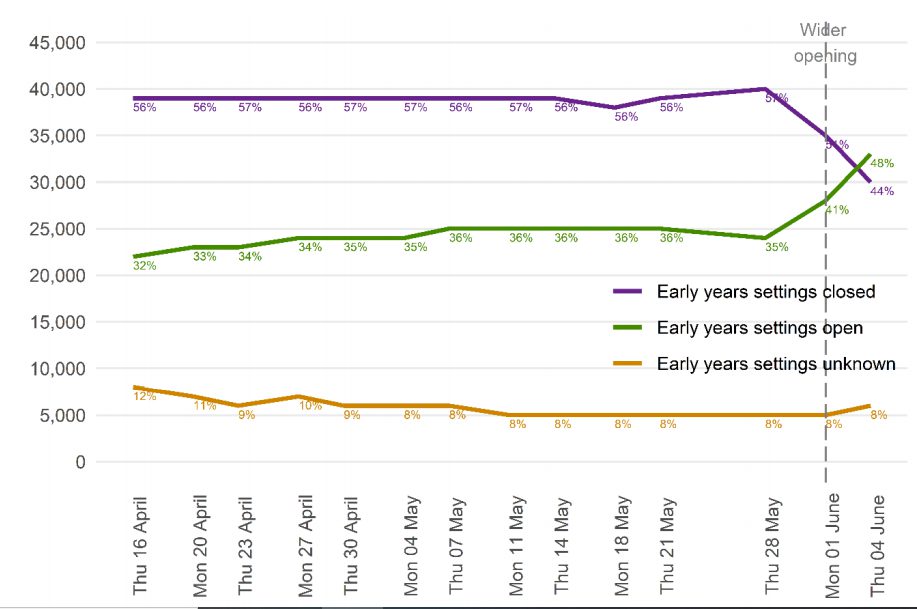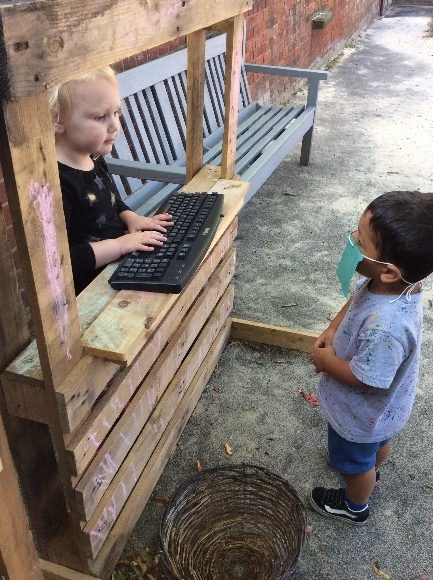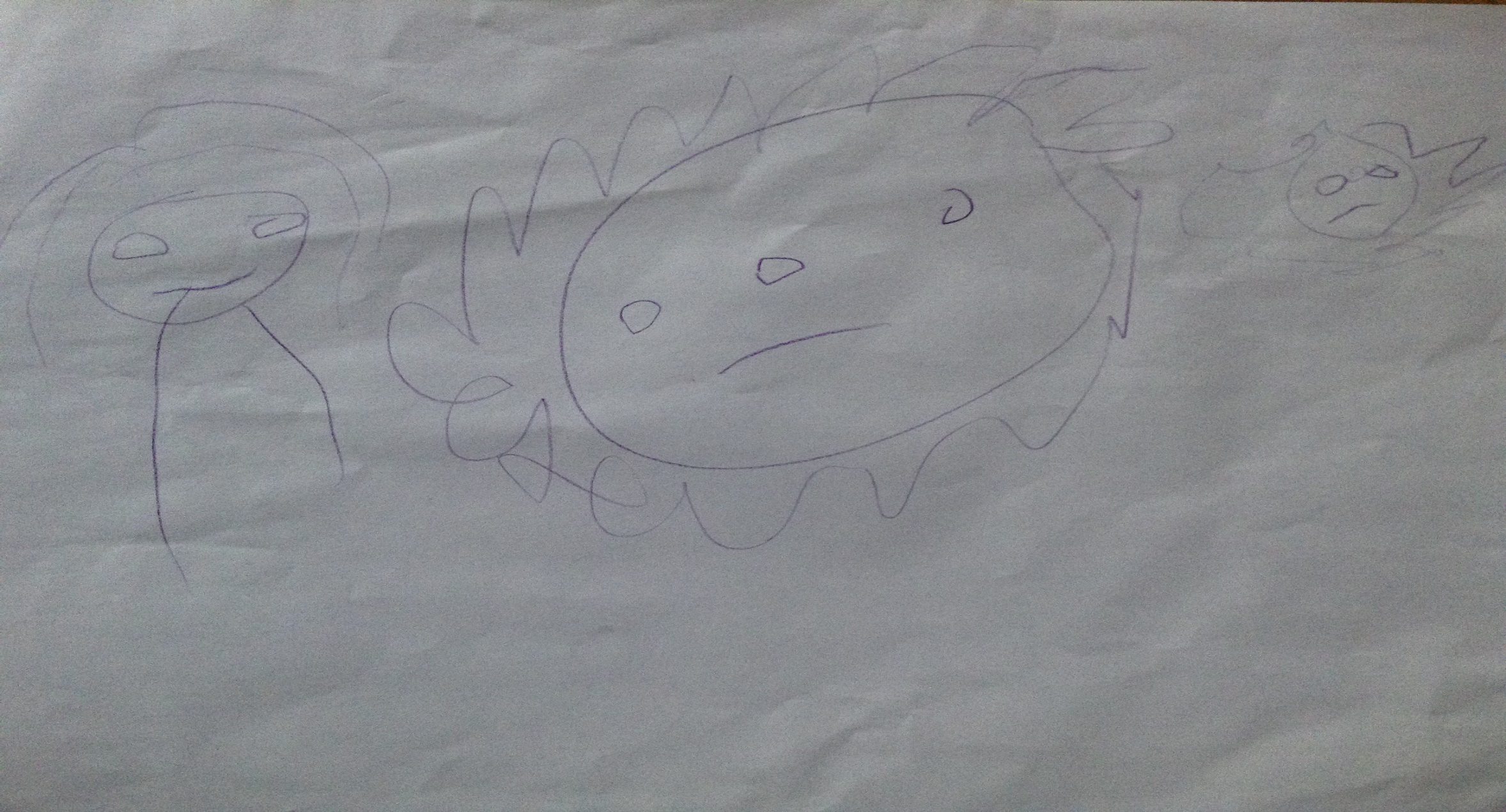A new study, commissioned by the Froebel Trust, is beginning to reveal Young Children’s Views of the Covid-19 Pandemic.
An update from Sacha Powell, CEO, Froebel Trust
The project involves experienced educational researchers working alongside expert practitioners, young children and their families in Early Childhood and Care (ECEC) settings where Froebelian principles underpin the pedagogies and curricula. These settings are in Scotland, England and New Zealand where the grip of the pandemic and the responses from governments have been markedly different.
The project’s director, Professor Chris Pascal recently presented some of the early findings in a keynote presentation at an online convocation of the European Early Childhood Education Research Association. Watch her presentation here.
While attending “2020 Vision for EYE”, an online conference organised by OMEP (World Organisation for Early Childhood Education) Ireland on Saturday 7 November, I was reminded of the underlying ethos of the Froebel Trust’s Covid-19 study.
During the morning session, the first speaker, Professor Noirin Hayes (Trinity College Dublin), asserted the importance of keeping young children at the centre of conversations on a vision for early childhood education and care (ECEC).
Conversations about children’s learning and development are happening daily in ECEC settings globally. But they occur less frequently in policymaking where ‘childcare’ – primarily concerning accessibility and affordability of services for working parents - has been a more dominant discourse during the Covid-19 pandemic, despite anxiety about a worsening ‘attainment gap’ due to restricted access to formal educational provision.
The second speaker at the OMEP Ireland conference, Professor Aoife Nolan (University of Nottingham), spelled out the international human rights of young children and of ECEC practitioners, noting they are closely interconnected and have become similarly limited due to the pandemic, most notably for those people, including children, who were already disproportionately disadvantaged by human rights restrictions and abuses.
The Department for Education in England illustrated this situation: it was reported that young children’s attendance at ECEC settings in June 2020 was just 10% of pre-pandemic rates and many settings did not (perhaps could not) reopen after the first lockdown. Ofsted has reported that while some children are considered to have thrived at home, others are perceived to have ‘fallen behind’ in the prime areas of learning during the March-June lockdown (Ofsted, 2020, p.5). Practitioners have worked hard to adjust and respond sensitively and creatively to support all aspects of children’s development.
Status of Early Years Settings (DfE, 2020, p.9)

The third speaker, Dr Geraldine French (Dublin City University) explained the benefits for infants and toddlers of slow relational pedagogies, which provide the time and focused attention in which warm, trusting relationships can evolve and support the youngest children’s learning and development. Dr French cited the work of Dr Alison Clark (University of S.E. Norway), whose current research on slow pedagogies is funded by The Froebel Trust.
The evidence of changes for young children resulting from the global health crisis provides a stark backdrop for any ECEC visions as we move forwards to an uncertain future. But a vision that places babies’ and young children’s lived experiences front and centre; provides time, space and attentiveness to their relational rights, concerns and interests; and involves them in decision-making with practitioners and families, seems more likely to support a rights-based approach within the context of a reciprocal ethic of care. This is an approach that is supported by Froebelian principles, illustrated through emerging findings from Young Children’s Views of the Covid-19 Pandemic.
This important project explores how a Froebelian storytelling approach can be used as a methodology and as a means to sensitively support young children’s (aged 2-4 years) responses to the pandemic. The children’s narratives on their return to the ECEC settings, which the practitioners have documented in various ways, have begun to reveal some key messages about their experiences (CREC, October 2020):
Importance of Outdoors (Froebel Principle - Engaging with Nature)
Practitioners at all settings reported that the children appear to prefer being in outdoor spaces when they are at nursery, with many more choosing to be outdoors now than before COVID. The deep impact and significance of Forest School experiences has been noted.

Children’s COVID Wisdom (Froebel Principle - Learning through self-activity and reflection)
Children have a great understanding and knowledge about the coronavirus and its impact on daily life. They can describe what the virus is, why it is dangerous, how to reduce risk and what the impact on their lives has been, demonstrating a great deal of detailed knowledge and understanding.


Transitions and Settling (Froebel Principle - Unity, connectedness and community)
The resilience and adaptability of the children to the new conditions seems to be the dominant picture in all four study sites, meaning the transition has been well managed by the practitioners. However, for some children and parents there are added stresses due to the reduced nursery hours meaning that the child has to access multiple care contexts, even across a day. Both parents and children express unhappiness about this. The children also expressed their relief and happiness at returning to nursery.


Children’s Silences and Expressions of Resilience (Froebel Principle - Learning through self-activity and reflection)
There is some evidence that some of the children do not want to dwell on their COVID experiences, or express their feelings about them but prefer to immerse themselves in other, more normal, play e.g. superhero play, domestic play. Practitioners felt this immersion in non-COVID play offered a kind of refuge to them. Children are also slipping more fluidly between home language and host language in their play, and seeking out adults who speak their home language more. Most of the children displayed strongly how they were accommodating to their lived reality of COVID and did express this in many ways during the nursery activities.

Changes in Children’s Play (Froebel Principle - The central importance of play)
A number of the practitioners felt that the nature of play had changed and was deeper and more extended since the children had returned. Some reported there had been little spontaneous play about their lockdown experiences but that the children were playing with greater intensity and with more extended bouts of focus. They felt this might also be the result of lower numbers of children in the settings which has encouraged more complex, richer and deeper play even when not COVID-related.
The significance of transitions and play in natural / outdoor spaces and of paying attention to young children’s experiences of the return to nurseries were similarly reported by Froebelian educators, Wendy Baker and Sally Cave in a recent article for Nursery World.
The project Young Children’s Views of the Covid-19 Pandemic will continue until January 2021, incorporating successive lockdown experiences. The findings about Covid-19 from children’s and practitioners’ perspectives will be reported on the Froebel Trust’s website and other platforms in February 2021, along with information about Froebelian storytelling as a research methodology and approach to practice development that foregrounds children’s narratives and respects their international human right to be heard in conversations about Covid-19 and visions for ECEC in the future.
[Photo credits: CREC and Guildford Nursery School and Family Centre]


